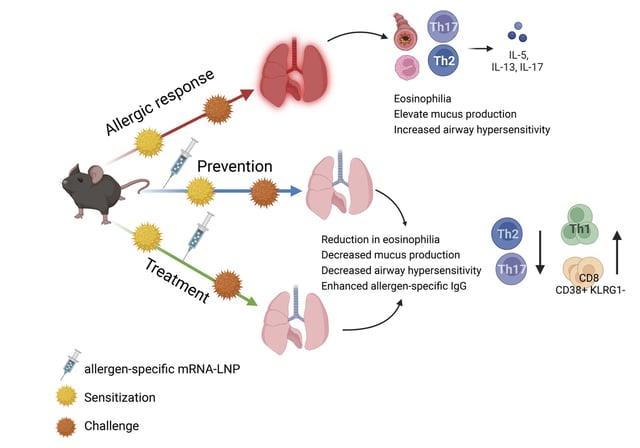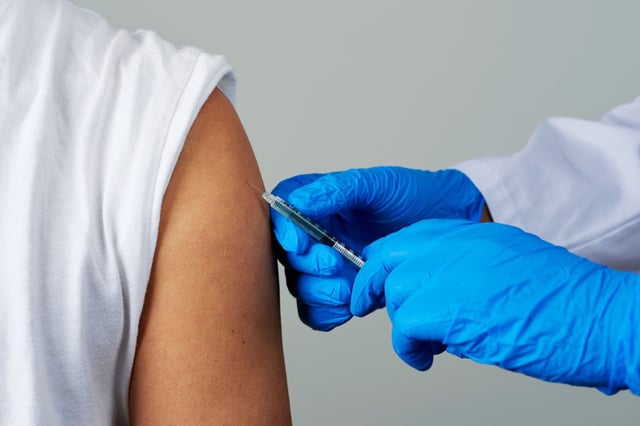Overview
- Researchers from the University of Pennsylvania’s Perelman School of Medicine and Cincinnati Children's reported that vaccinated mice did not experience allergic reactions when later exposed to targeted allergens.
- The vaccine delivers mRNA that instructs cells to present proteins resembling specific allergens, training the immune system without provoking an allergic response.
- Treated mice showed fewer allergy-related white blood cells, reduced inflammatory proteins, less lung mucus, protected airways, and the development of protective antibodies.
- The modular mRNA-LNP approach could be tailored for seasonal pollen, food allergies, and asthma, with authors also citing potential relevance to conditions like celiac disease.
- Investigators plan to pursue initial human safety testing and to study dosing, how many allergens can be combined per shot, and the durability of protection; the work was funded by the Food Allergy Fund and NIH (NIDDK P30 DK078392).


